Femia > Health Library > Your cycle > Sex > Clitoral stimulation: A guide to finding and pleasuring the clitoris for ultimate satisfaction
Clitoral stimulation: A guide to finding and pleasuring the clitoris for ultimate satisfaction
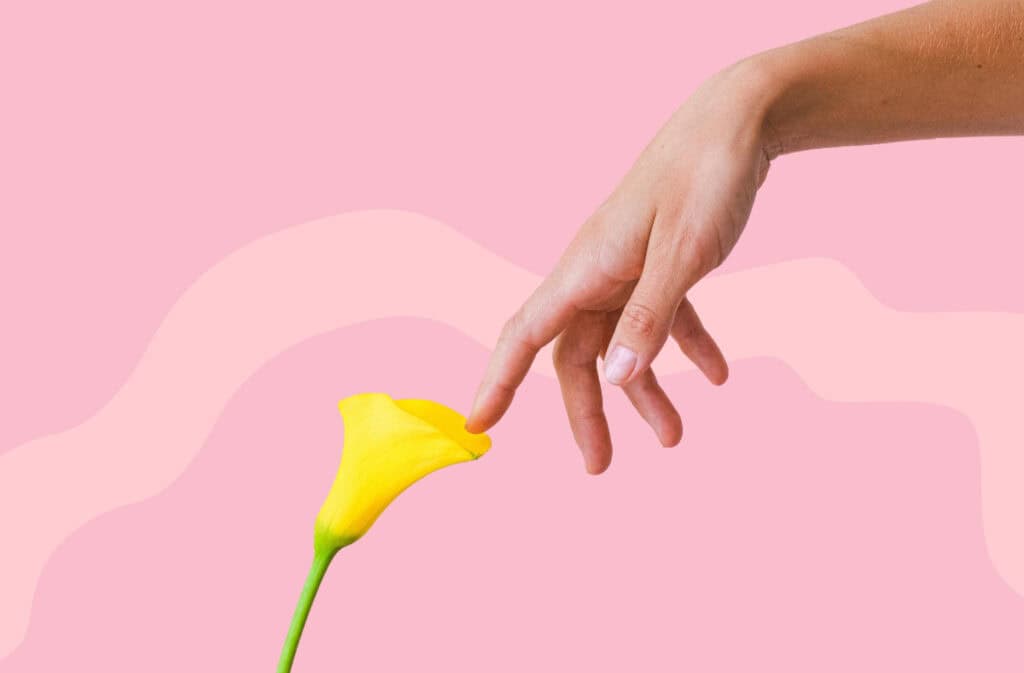
- Updated Feb 27, 2025
- Published
CRAFTED BY HUMAN
Crafted by human At Femia, we provide accurate and up-to-date information at every stage of your journey, from trying to conceive, pregnancy and postnatal support. All content is created by a real person based on in-depth research and own professional experience. Femia ensures that you will receive expert advice, strict accuracy and a personalized approach from our authors/medical experts. Learn more about our editorial policy.
FACT CHECKED
Fact checked At Femia Health, we maintain the highest standards of editorial excellence in delivering content focused on helping you conceive, guiding you through pregnancy, and supporting you postpartum. Explore our content review principles to learn how we ensure the accuracy and quality of our health and lifestyle tips for every stage of your journey.
Your clitoris can be found by gliding your fingers under the top folds of your labia. The clitoris is rich in nerve-endings, making it a crucial part of sexual pleasure. Clitoral stimulation is often essential for women to reach orgasm during a sexual experience. Explore your clitoris through a gentle touch, small strokes, or repeated pressure to help get a sense of what feels good for you. If you are exploring your clitoris for the first time, try different techniques, and consider using sex toys to enhance your pleasure.
The clitoris, in essence, is the “sweet spot” for female pleasure, enhancing it and often helping women to reach orgasm. Clitoral stimulation to achieve orgasm can be different for each woman, so it’s crucial to explore what works for you. You can do this through manual stimulation or with the help of sexual tools. It may take some trial and error, but this step-by-step guide can help you locate, stimulate, and maximize your sexual experience through the clitoris.
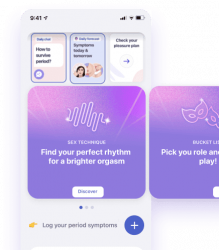
What and where is the clitoris?
To understand what brings you sexual pleasure, knowing what your clitoris is and finding it becomes step one. The clitoris is a part of your external genitalia, located above your vagina within your labial folds. What you see as the clitoral hood, covering the clitoral head, is only 10% of the whole clitoris. The majority of your clitoris is found internally. It is shaped like a wishbone, extending almost five inches internally, beneath your labia and toward your cervix.
Internally, your clitoris contains erectile tissue, which swells up when you are aroused. It is estimated that the clitoris has thousands of nerve endings, which explains why it should be the main player in your sexual pleasure.
How to find the clitoris: A step-by-step guide
In a study with 749 women, 94% of them indicated that clitoral stimulation helps them achieve orgasm. Similar studies show that just clitoris stimulation is sometimes sufficient for orgasm, with a smaller percentage saying that both clitoral and vaginal penetration are required.
Here’s how to locate your clitoris:
- Find a comfortable position on a chair, sofa, or bed, facing a mirror (or using a handheld one).
- After washing your hands, slowly open the lips of your labia, looking at your vulva, which encloses the vagina, urethra, and clitoris.
- As you move your fingers to the topmost area of your vulva, you should be able to see and feel your clitoral head.
The different parts of your vulva may not look the same as what you have seen previously in pictures. However, it is reassuring to know that all vulva owners have a uniquely shaped and colored clitoris. The size, either big or small, doesn’t impact the intensity of the orgasm. So, rest assured, once you find your clitoris, the next step is exploring what feels good for you through clitoral stimulation.
👉Find out more: Does ovulation make you horny? Understanding the link between ovulation and libido
Clitoris orgasm: How to achieve it?
You can achieve orgasm through rhythmic stimulation of your erogenous zones. While sex (and pleasure) has always been associated with vaginal penetration, only 18.4% of women reported achieving orgasm through penetrative sex in an internet-based survey of 1,000 women.
More women achieve orgasm with some form of clitoral stimulation, either alone or when combined with penetrative sex.
Even when considering the famed G-spot, studies have now shown that it is most likely located in the anterior wall of the vagina, closely approximated to the internal clitoral vestibules. This makes clitoral stimulation important for achieving your orgasm.
To achieve orgasm, continuous stimulation of your erogenous zones, such as the clitoris, is essential. This can be through small strokes, applying firm and repeated pressure, or some may prefer a gentle touch. If you haven’t already explored what works best for you, try different techniques. You may also consider supplementing your exploration time with vibrators or lube to help you reach orgasm.
How to stimulate the clitoris: Techniques for pleasure
With your clitoris, there is no direct switch to turn it on. If this is your first time exploring what you enjoy with clitoral stimulation, be sure to take your time. Slowly feel your way to your clitoris and the surrounding areas for what feels pleasurable for you. While it can be tempting to reach for sex toys, it is best to start with your fingers to see what areas are sensitive to stimulation.
While some may find direct contact with the clitoris pleasurable, others might require a little coaxing by gently caressing the areas around the clitoris. You can try varying techniques and motions to find one that works for you:
- A gentle rub up and down or sideways on your clit
- Tapping repeatedly on the clitoral hood, slowly building up momentum
- Circular motions around the clitoris, slowly reaching toward more sensitive regions
- A combination of stimulation, such as moving your fingers around your vagina and slowly moving to your clitoris
Directly stimulating your clitoris may not arouse you, especially if most of your erogenous area is dry. Excess friction will only dial down the fun. So, think about what helps start your arousal process—these could be specific emotions or sensations. You may want to consider using lubricant when you initially start exploring, to make the process more comfortable. Opt for a water-based one—it is safer to use, compared to other lubricants, as it has more natural ingredients. It also won’t damage condoms or sex toys when used.
Clitoris massage: Enhancing stimulation for stronger orgasms
If you find clitoral stimulation to reach orgasm overwhelming, especially if you have been trying for a while, consider a sensual clitoral massage. Sometimes it takes a while to get in tune with what feels good for your body. Gently massaging your clitoris and the surrounding areas of your pelvic floor can help you locate which ones feel good to your touch.
Additionally, a regular practice of pelvic floor massages and techniques to relax your pelvis, such as reverse kegel exercises, can help enhance stimulation when working toward a clitoral orgasm. Building these exercises into your daily routine can help reduce the pain and discomfort associated with sex. Over time, they can also help build momentum for stronger orgasms.
👉Find out more: Understanding female libido: Signs of a high sex drive in women
Clitoral masturbation: Solo techniques for exploring pleasure
Once you build some intimacy with your clitoris and explore what makes you feel good, taking yourself to an orgasm during masturbation is a slow next step. For solo playtime, consider setting the mood and keeping your favorite sex toys handy—whatever makes you comfortable. Explore your body, building up to an orgasm, and think about the sensations that feel good to you. This can include some nipple play along with anal or vaginal stimulation. While building up to the orgasm, you can include your clitoris, either with your fingers or a sex toy.
Using different techniques, as we have seen above, and with some patience, you should be able to reach a clitoris orgasm during solo play. Do not hesitate to use some lube during masturbation to help maintain arousal. The longer the build-up, the more intense an orgasm usually is. For some women, orgasms increase in intensity the second or third time around. A few intense orgasms during masturbation may also cause you to squirt—a completely normal, often surprising, phenomenon coupled with climax.
How to rub the clit: Tips for partnered stimulation
Once you have explored and understood what works best for your pleasure, you can gently guide your partner in repeating the same for you during sex.
Some tips to follow during partnered stimulation:
- You can guide your partner’s fingers to the type of strokes that feel good for you while stimulating your clitoris.
- During oral sex, suggest the direction of strokes and momentum that works best for stimulation.
- Allow your partner to explore your clitoris and surrounding areas to see what new touches may feel pleasurable for you.
- Consider introducing sex toys or a vibrator during penetrative sex, especially if you can only orgasm through continual clitoris stimulation.
- Talk regularly during the process to communicate both pleasure and discomfort, helping build trust and respect.
If this is the first time you are introducing clitoris play or you have a new partner, know that it will take some time for them to understand your body. Regular sexual communication has been proven to provide a positive sexual experience, especially for women.
Exploring different tools for clitoral stimulation
During partnered sex or solo play, adding a sex toy for clitoral stimulation can help you reach orgasm. Sometimes your fingers are just not enough!
If you can achieve orgasm through both vaginal penetration and stimulation of the clitoris, you may want to add a dildo or wand during solo play, along with a vibrator. Many sex toys now come with dual purposes, having both a vibrator for clitoral stimulation and a penetrative dildo. Speaking with a sex toy expert about your needs can often be useful in finding the right one for you.
With the variety of options, it can seem daunting, so a good idea would be to start small and then add along the way. Be sure to maintain optimum hygiene practices, such as washing your toys before and after use, and using condoms if you are sharing them during penetrative sex with your sexual partners.

Questions from the Femia community
Why can’t I find my clitoris?
The clitoris’ appearance, shape, and size differ for all women. Some might have easier access, especially if the clitoris is slightly bigger and more noticeable in the vulva. While for others, more of the sensitive parts of your clitoris might be under your clitoral hood. This is why being patient and carving out some time to explore your clitoris can help you identify your personal erogenous zones.
Can too much clitoral stimulation be harmful?
Excessive clitoral stimulation in any one session of solo or partnered play can lead to slight numbness or soreness. It may also increase sensitivity for a while after stimulation. However, it should not cause significant harm, especially after giving it some rest. Using a lubricant can help with dryness during sex. If you repeatedly notice pain with clitoral stimulation, consider talking to your doctor.
Is it normal not to orgasm from clitoral stimulation?
Absolutely! Everyone is different, and so is what makes them orgasm. While clitoral stimulation (frequently coupled with vaginal penetration) is crucial for many women to reach orgasm, for many women it is not. Women have reported reaching orgasm simply through vaginal penetration. And, for a small percentage, other aspects of sex, such as nipple stimulation or anal penetration, have been known to lead to orgasm.
The bottom line
Your clitoris is a powerhouse for your orgasm. While small and often hidden, taking some time to understand what your clitoris needs to feel good can help you orgasm. Different techniques, along with supplements such as sex toys, can help you maximize your pleasure.
On average, a Womanizer-commissioned survey of 6,000 people recorded that women masturbate 49 times a year on average, which is roughly once a week. This survey also recorded a 68% masturbation gap. This means that with the prevalent stigma around masturbation and women seeking pleasure, there is a lot left to be explored.
So, while there is no definite answer to how often you should masturbate, regular self-exploration can help you understand your pleasure better and improve your connection to your body.
Consider openly communicating your desires for clitoris stimulation with your partner, especially if you require it to achieve orgasm during intercourse. Everyone’s requirements for their bodies during sex are different, and so are yours. Talk about it openly, take your time, and continue to explore what makes you feel good.
References
- Nguyen, John D., and Hieu Duong. “Anatomy, Abdomen, and Pelvis: Female External Genitalia.” StatPearls – NCBI Bookshelf, 25 July 2023, www.ncbi.nlm.nih.gov/books/NBK547703.
- Prause, Nicole, et al. “Clitorally Stimulated Orgasms Are Associated With Better Control of Sexual Desire, and Not Associated With Depression or Anxiety, Compared With Vaginally Stimulated Orgasms.” The Journal of Sexual Medicine, vol. 13, no. 11, Sept. 2016, pp. 1676–85, https://doi.org/10.1016/j.jsxm.2016.08.014.
- Herbenick, Debby, et al. “Women’s Experiences With Genital Touching, Sexual Pleasure, and Orgasm: Results From a U.S. Probability Sample of Women Ages 18 to 94.” Journal of Sex & Marital Therapy, vol. 44, no. 2, July 2017, pp. 201–12, https://doi.org/10.1080/0092623x.2017.1346530.
- Puppo, V. “The G‐Spot Does Not Exist.” BJOG: An International Journal of Obstetrics & Gynaecology, vol. 121, no. 11, May 2014, p. 1341, https://doi.org/10.1111/1471-0528.12893.
- Heyne, Julia. “Equal Masturbation Day: It’s Time to Close the Masturbation Gap!” ODiaries*, 6 July 2021, www.o-diaries.com/equal-masturbation-day.
- Falgares, Giorgio, et al. “The Role of Sexual Communication in the Relationship Between Emotion Regulation and Sexual Functioning in Women: The Impact of Age and Relationship Status.” International Journal of Clinical and Health Psychology, vol. 24, no. 3, July 2024, p. 100482, https://doi.org/10.1016/j.ijchp.2024.100482.
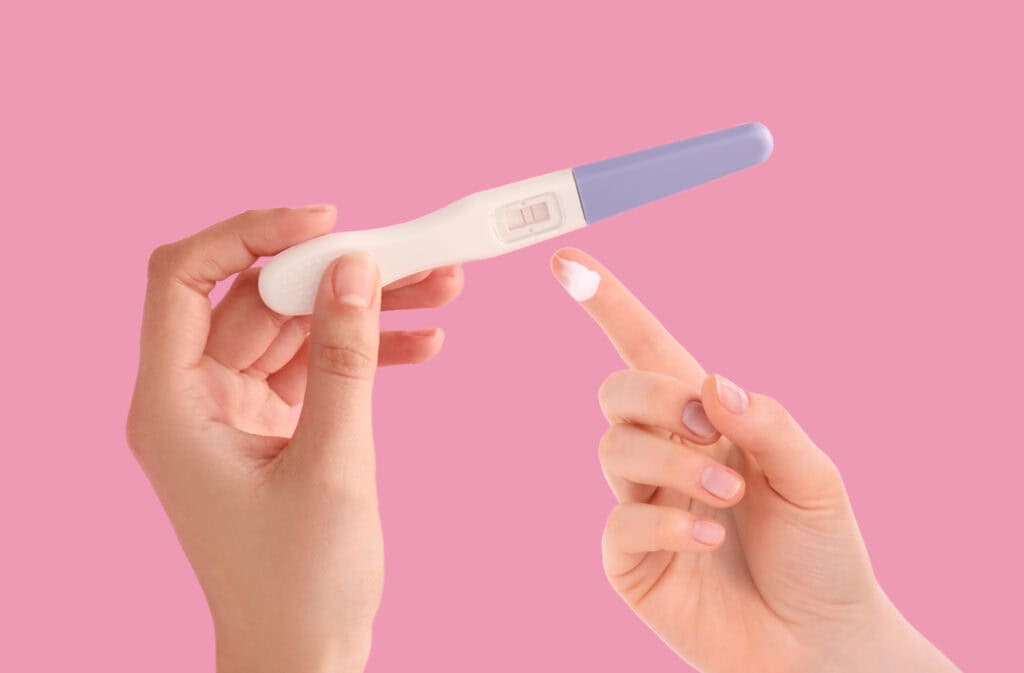
Learn how cervical mucus changes after ovulation if pregnant. Discover what discharge indicates early pregnancy and how to interpret signs to track conception success.
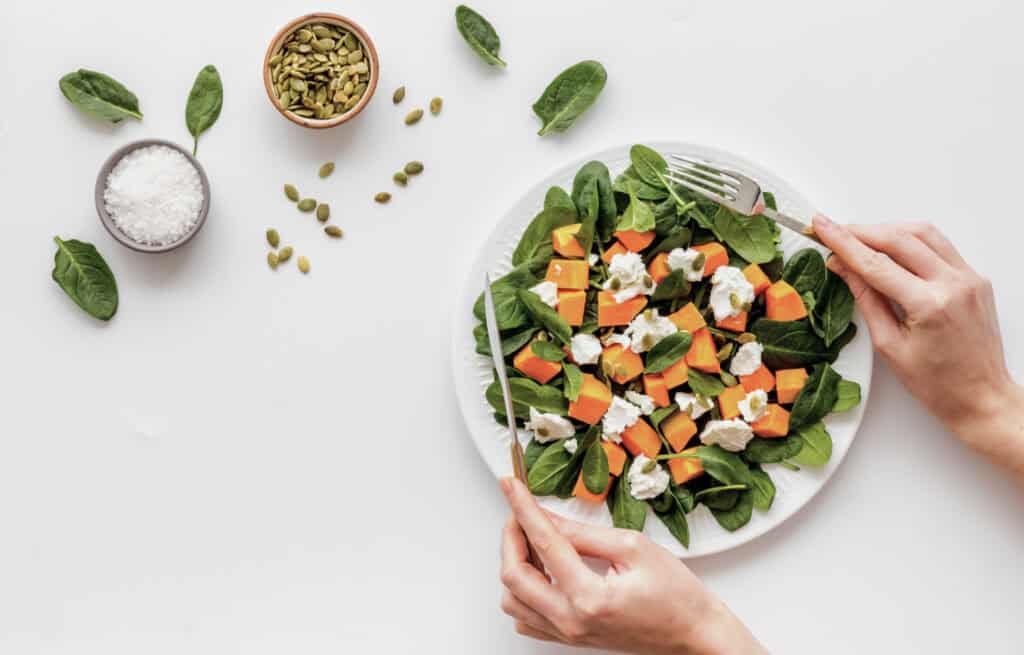
Get 1 to 3-month pregnancy diet chart and first trimester meal plan from expert. Explore the best pregnancy food chart with essential nutrients for your and baby health.
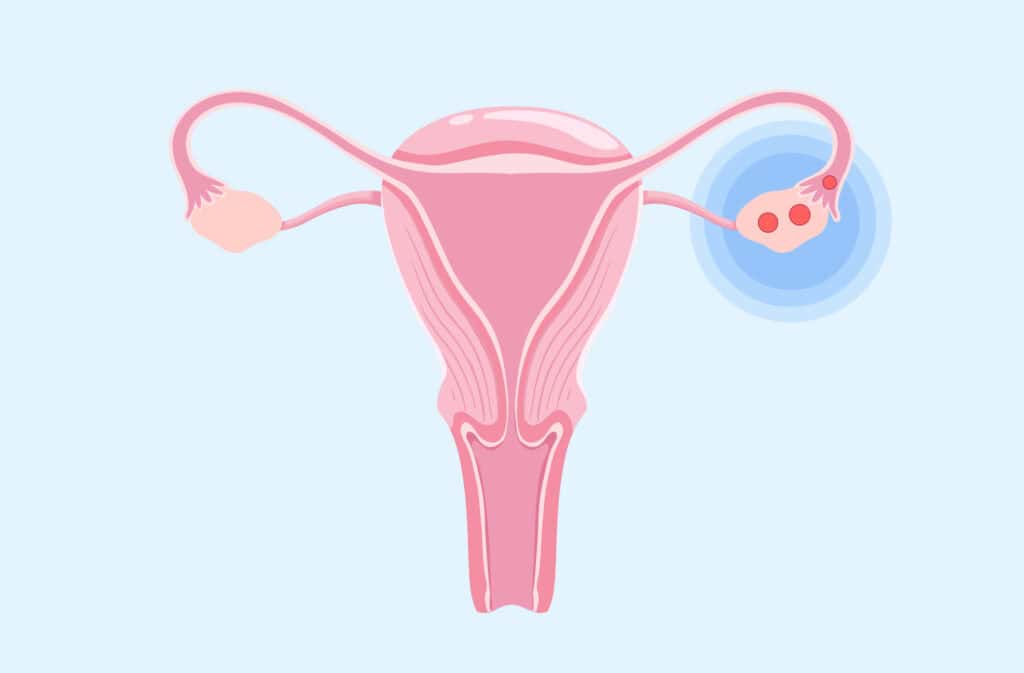
Discover if it’s possible to ovulate twice in a month with hyperovulation. Learn about 6 key symptoms and causes of hyperovulation. Expert insights from Femia.

